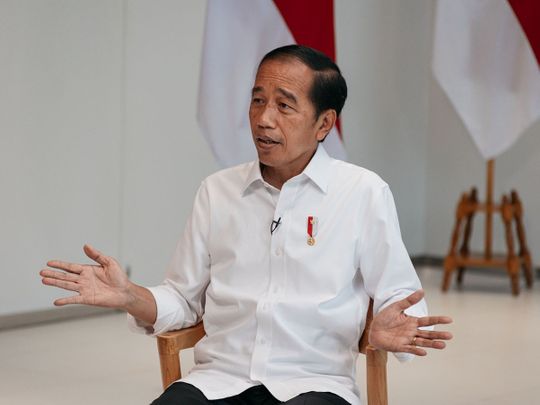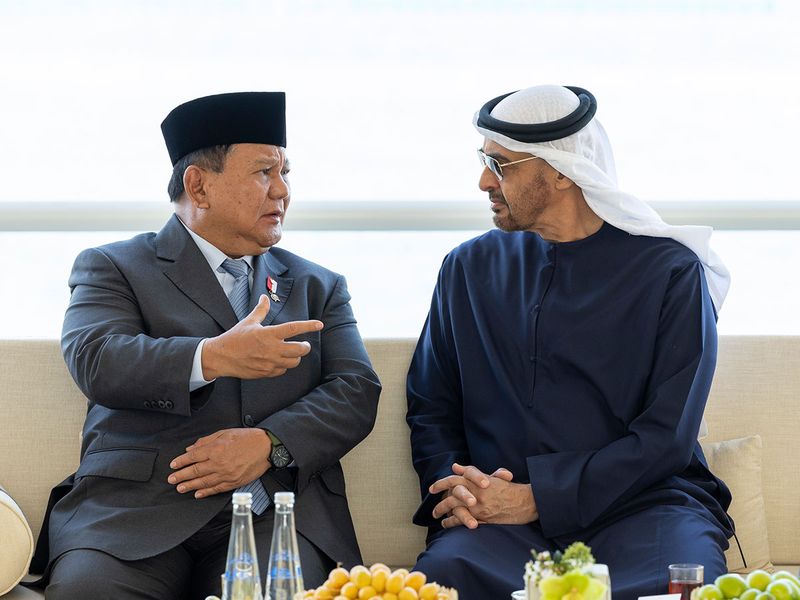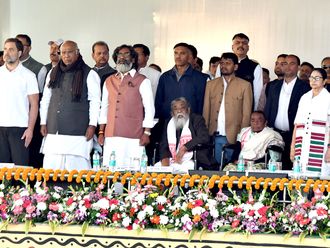
As President Joko Widodo (commonly known as Jokowi) of Indonesia prepares to step down at the end of his second and final term, he will be succeeded by his defence minister, former General Prabowo Subianto, who won the presidential elections earlier this year.
President Jokowi’s tenure has been marked by a focus on infrastructure development, social welfare programs, and education. Except for the pandemic year 2020, Indonesia maintained a consistent 5 per cent GDP growth rate during his time in office. His economic performance has received widespread domestic approval and international acclaim.
Over the past decade, Indonesia has experienced 43 per cent growth, accompanied by significant infrastructure advancements. Jokowi initiated the country’s first high-speed rail project and oversaw the construction of numerous airports, ports, and toll roads. He also established a new capital, Nusantara, away from the congested Jakarta, where he is expected to relocate before his term ends.
Golden Indonesia 2045
According to the Organisation for Economic Cooperation and Development (OECD), Indonesia’s GDP is projected to reach $8.89 trillion by 2045, making it the fourth largest economy in the world.
With 64 per cent of the population estimated to be of working age between 2030 and 2040, Indonesia is expected to harness a highly talented, creative, and productive workforce capable of transforming the country’s economic structure. The IMF forecasts that Indonesia will overtake Russia and the UK to become the world’s sixth largest economy by 2027.
As part of his economic development strategy, Jokowi’s government announced a road map titled “Golden Indonesia 2045,” which envisions Indonesia as an advanced economy by 2045 — marking a century of independence from Dutch colonial rule.
Jokowi is not a traditional politician. First elected as mayor of Solo city in 2005, he gained widespread popularity as governor of Jakarta in 2012 due to his empathy for the underprivileged. When Jokowi was first elected president in 2014, he had only 40 per cent of legislators behind him.
Now, he has 82 per cent, enabling him to push through legislative changes with minimal opposition. Thanks to his accomplishments, he remains remarkably popular at the end of his term, with over a 70 per cent approval rating — the highest for any outgoing Indonesian president.
Due to Indonesia’s unique geographical location, spanning thousands of miles and comprising over 17,000 islands, and its large population, it is courted by both China and the US.
Jokowi has skilfully navigated this geopolitical landscape, encouraging US investment while welcoming substantial Chinese investments, particularly as part of the Belt and Road Initiative. His adept handling of contentious issues during the G-20 presidency was globally praised, with Bali hosting the first Biden-Xi meeting in November 2022.
As Jokowi’s term comes to an end, his 36-year-old son, Gibran Rakabuming Raka, will be the country’s vice-president.

Continuation of Jokowi’s policies
Jokowi, a coalition builder who brought in adversaries like Prabowo as his defence minister, contrasts sharply with the incoming president. Yet, Indonesian voters may see in Prabowo a continuation of Jokowi’s economic development efforts combined with independent leadership.
Prabowo’s presidency is likely to extend Jokowi’s regime, with voters expecting him to continue Jokowi’s economic and social development efforts. Probowo is anticipated to uphold Jokowi’s pragmatic approach towards China, seeking Beijing’s support for Indonesia’s infrastructure development.
In line with this, president-elect Prabowo, speaking at this year’s Shangri-La Dialogue in Singapore, stated that Indonesia will continue to partner with both the United States and China in its national interest. Similarly, Probowo is expected to maintain a conciliatory stance on contentious South China Sea claims.
Having spent decades in the military and years in politics, Prabowo understands that governing is complex and requires coalition-building. His supporters want him to lead Indonesia’s democracy.
Indonesia’s remarkable growth and international engagement during Jokowi’s era will provide the new government with the fundamentals and confidence needed to navigate global uncertainties in the years ahead.
Sajjad Ashraf served as an adjunct professor at the Lee Kuan Yew School of Public Policy, National University of Singapore from 2009 to 2017. He was a member of Pakistan Foreign Service from 1973 to 2008 and served as an ambassador to several countries.







_resources1_16a45059ca3_small.jpg)

